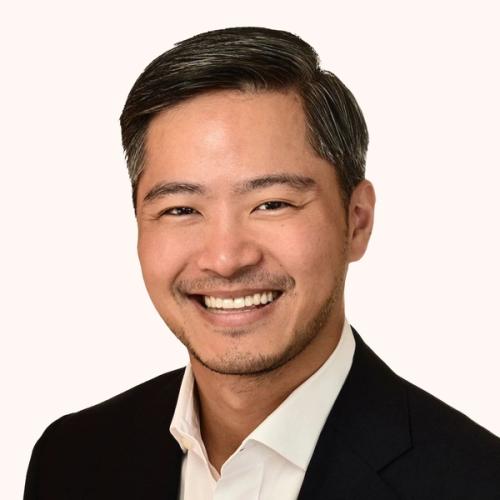Zoe Haseman: Why Sustainability Means More Than Just Achieving Net Zero


Sustainability means more than just climate change. Zoe Haseman, Infrastructure Head of Sustainability at EQT Partners, on the other things we need to consider.
Tackling climate change is not a silver bullet for all of our planet’s sustainability problems. Emissions targets do not reverse deforestation, nor do they pull people out of poverty.
Of course, achieving net zero is of paramount importance and many of the planet’s biggest sustainability problems are linked to climate change in one way or another. But we must consider sustainability in other areas, such as nature and society, in their own right. We must also identify where we need to make trade-offs in the journey towards net zero.
Few would doubt that the rising number of onshore and offshore wind farms is anything but a positive development in the fight against climate change. But what if unsustainable practices are buried within a wind turbine manufacturer’s supply chain? What happens to wind farm infrastructure when it reaches the end of its working life: has it been designed to be recycled and repurposed, or will it create mountains of industrial waste? What efforts have been made to keep wind turbines away from bird habitats and migration routes?
“Globally, nearly one million coal mining jobs will disappear by 2050”
And what of the fate of coal miners in a new age of wind and solar power? Globally, nearly one million coal mining jobs will disappear by 2050, according to a Global Energy Monitor report published in late 2023. These people will need new jobs in clean energy or to be retrained to work in other sectors, and the communities that grew up around the mines will need to be protected.
Lithium is a key component in the batteries that power electric vehicles. According to the International Energy Agency, demand for lithium is set to soar, from 165 kilotons globally in 2023 to 1,326 kilotons globally by 2040. But lithium is a finite resource and there are concerns about the sustainability of extraction techniques. One study found that extracting a tonne of lithium carbonate from lithium-containing brine meant losing as much as 800 cubic meters of water to evaporation.
Investment in clean energy globally will hit $2tn this year, compared with $1tn for fossil fuels, the International Energy Agency has predicted. But a sustainable world won’t become a reality by way of clean energy investment alone. Sometimes, we can be a bit short-term about apparently brilliant solutions, failing to see the problems they might create in the future.
My job at EQT is to step back,look at the whole picture, and help to seek ensure our infrastructure teams to invest with a more broad spectrum of sustainability in mind — to create long-term value for our investors. Investing in infrastructure that’s critical to the renewable energy transition — things like electric and hydrogen-powered vehicles, charging networks, and of course, wind and solar power projects — is an important step towards a more sustainable world.
There’s broad and increasing momentum across public and private markets to better understand how business impacts not only climate but also nature and society. Innovative solutions are being found for pressing problems, like the start-ups that are testing new ways of recycling lithium from used EV batteries. Some businesses are being proactive about discovering and then mitigating — or even reversing — any unintended damage they cause to nature.
Policymakers are encouraging them to act through initiatives such as the Taskforce on Nature-related Financial Disclosures, which has developed guidelines to help businesses assess, disclose and manage nature-related risks. The guidelines, which were launched late last year, have already been adopted by more than 400 businesses.
The renewable transition should be a just transition that improves the lives of everybody on the planet. This means understanding everything from localized societal effects, like people losing their jobs when a coal-fired power plant shuts down, to international diplomatic effects, like the fact that developing nations bear the brunt of climate change and want developed nations to share the cost burden. World governments have taken up the mantle: many allude to a just transition in their plans to tackle climate change, and the concept is embedded in the Paris Agreement.
As well as looking inwards at their own operations, businesses are also looking outwards to their supply chains. For example, an EV manufacturer might want to know that the lithium in its batteries has been sourced sustainably from companies with good human rights records. This might be a complex process that involves digging deep. But it’s not about finding skeletons in the closet. It’s about engaging and collaborating with suppliers, helping them to build awareness around sustainable business practices and boosting their capacity to drive positive change.
Codes of conduct for suppliers are helping businesses to get ahead of supply chain sustainability issues. Many companies are now, as a minimum, seeking assurances from suppliers about human rights, environmental protection, decarbonisation, packaging waste, fair pay, and health and safety matters, among others.
These developments are welcome. If we humans focus only on climate change, there’s a risk that we will only address part of the full challenge — we’ll only buy ourselves a little more time.
Zoe joined EQT Partners in October 2022. Zoe works closely with EQT’s investment advisors to integrate sustainability across all stages of the deal cycle; ensuring how we do business creates a positive impact. Zoe supports our portfolio companies by collaborating with them to accelerate sustainable transformation across our investments’ operations and unlock value creation. Prior to joining EQT Partners, Zoe was the Global Head of Sustainability with Jacobs, a US-based, Fortune 200 professional services company, where she was responsible for creating and delivering the corporate sustainability agenda. Prior to this role, Zoe was a sustainability technical lead on major infrastructure projects. Zoe has over 20 years’ international experience as a sustainability leader working across multiple sectors and industries. She is currently on the Board of two non-profits – Engineers without Borders UK and the World Environment Center.
ThinQ is the must-bookmark publication for the thinking investor.


